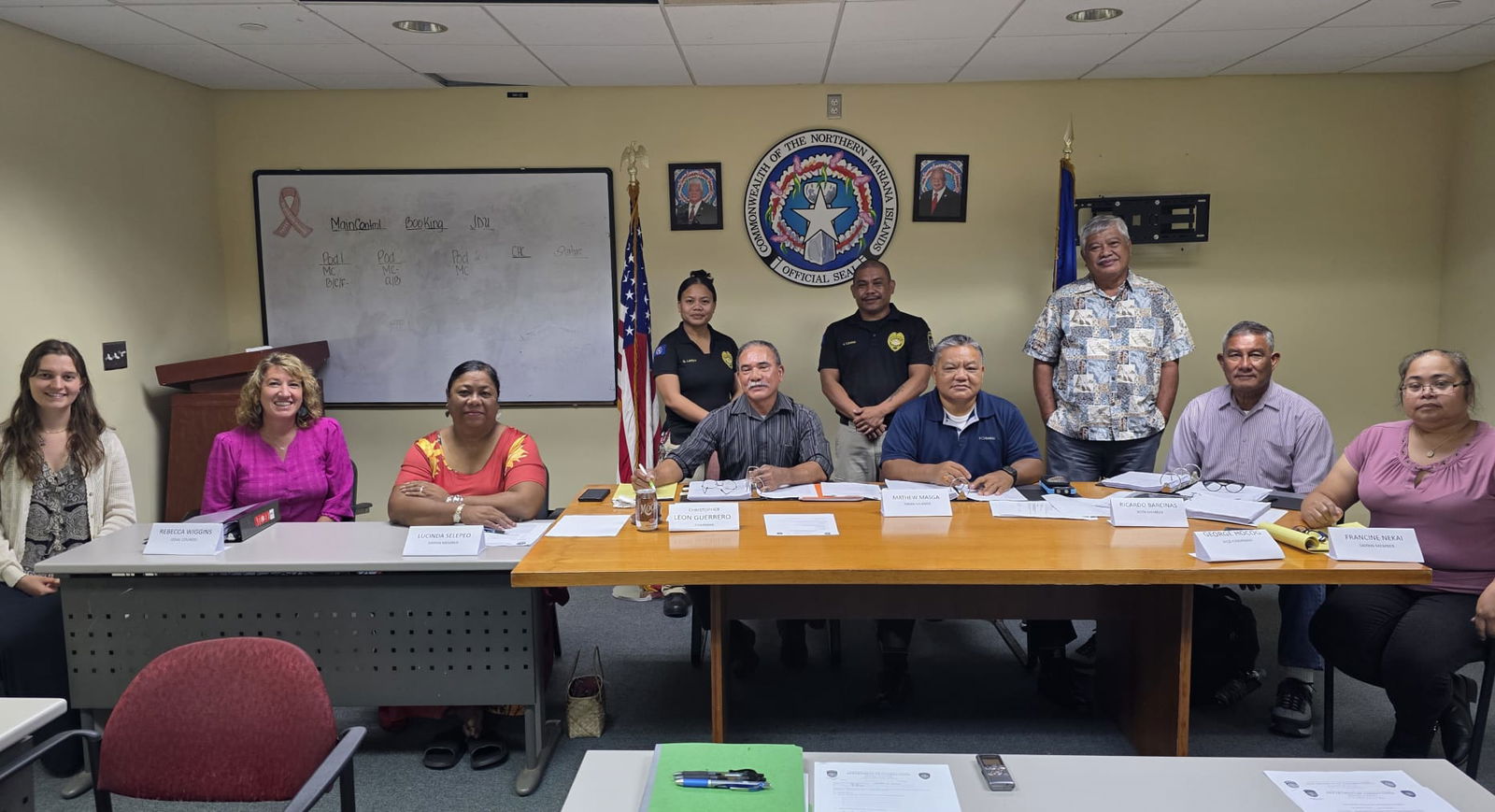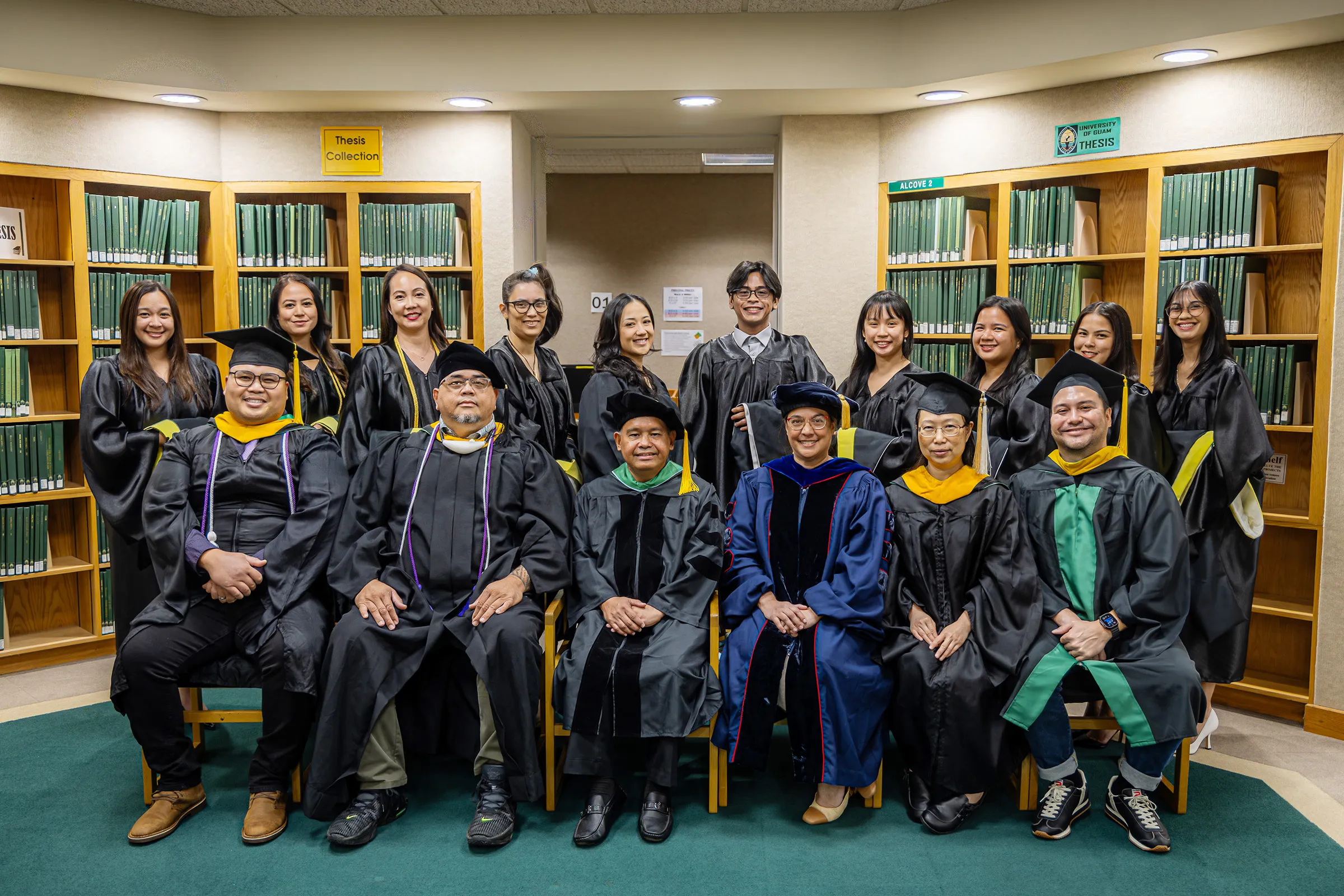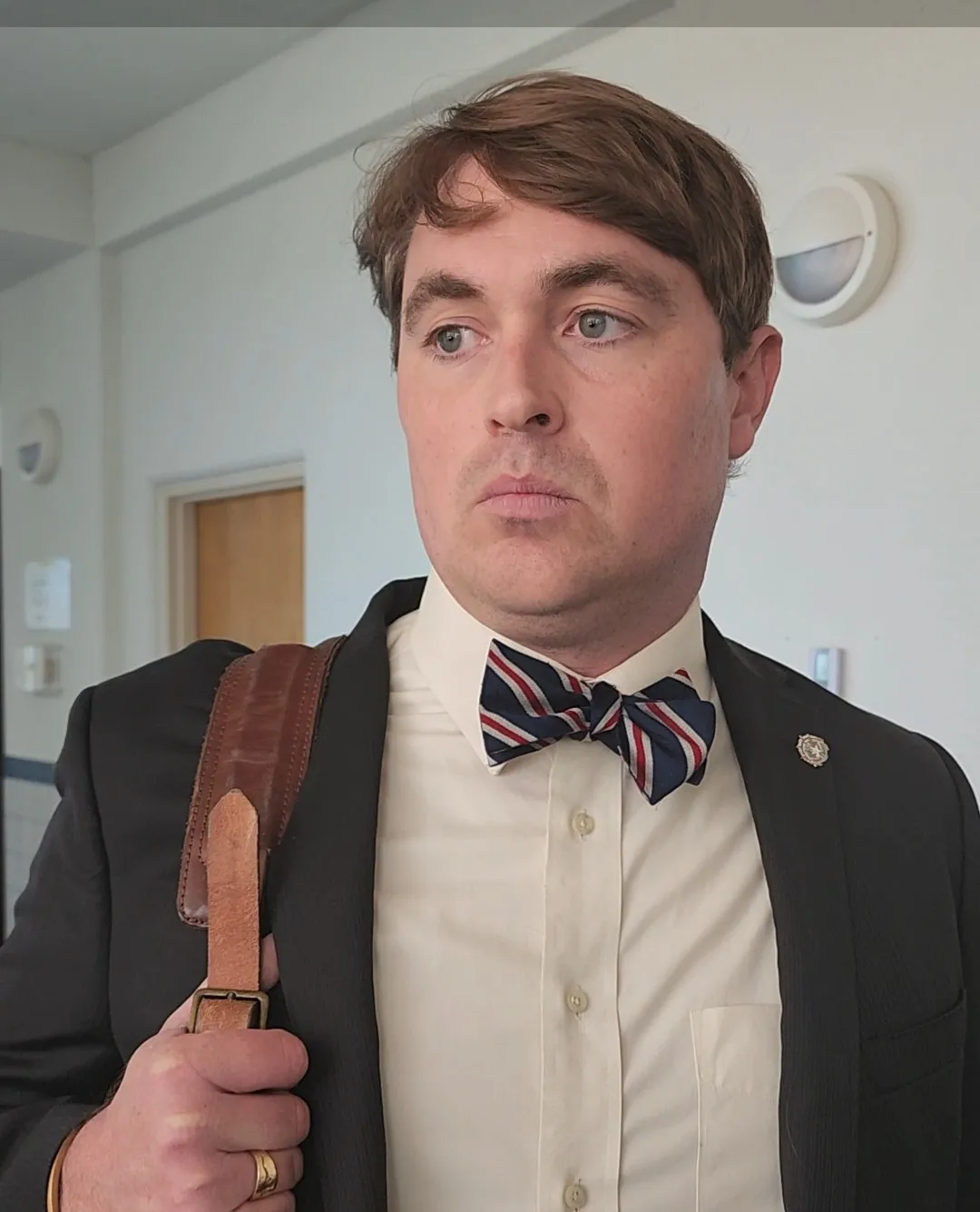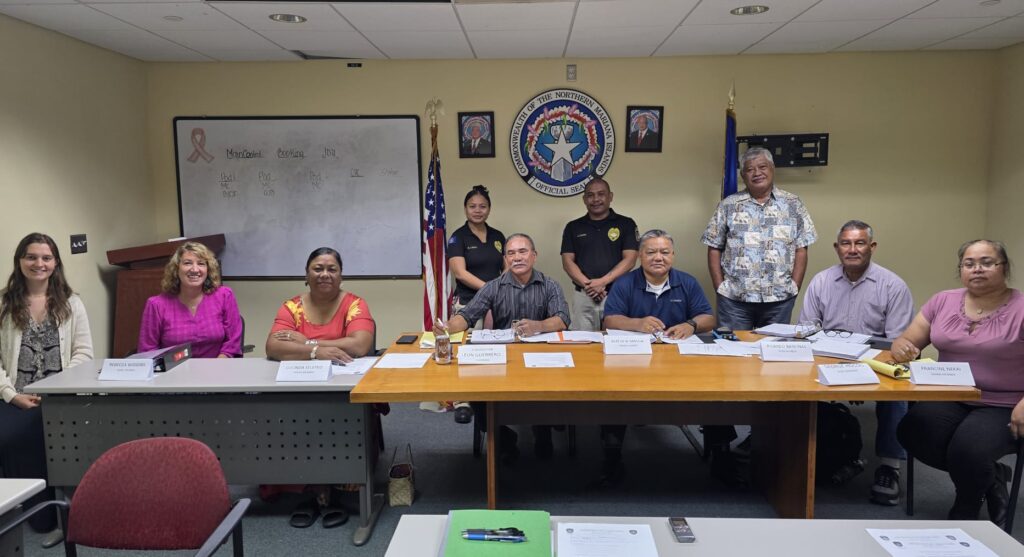
CNMI Parole Board Chairman Chris Leon Guererro, center, with members Francine Nekai, Lucinda Selepeo, George Hocog, Matthew Masga and Ricardo Barcinas. Also in photo are the board’s legal counsel Rebecca Wiggins, parole officers Jason Lizama and Shirlyn Laniyo, and an intern.
Photo by Bryan Manabat
THE CNMI Parole Board has denied the parole applications of three inmates: Donald Ayuyu Hocog, Robert Shineachi, and Jordan Tudela.
Parole Board Chairman Chris Deleon Guerrero said, “All three applicants are similar in the nature of their cases.”
“All were denied parole based on the seriousness of their convictions and other circumstances,” he added.
Chief Prosecutor Chester Hinds of the Office of the Attorney General – Criminal Division had recommended that the parole board deny the early release applications of the three inmates.
In 2013, a jury found Hocog guilty of sexual abuse of a minor in the first degree, incest, and assault and battery. He was sentenced to serve 30 years in prison in 2017 and is required to register as a sex offender. Hocog is scheduled to be released in October 2043.
Hinds strongly opposed Hocog’s early release.
“Granting Hocog early release does not apply equal justice. It would undermine the authority of the justice system and the trust of the community. It would suggest that sex offenders such as Hocog can commit serious crimes and still receive lenient treatment. This would certainly be unfair to law-abiding citizens who expect justice to be served — and most especially to the victim and her family,” Hinds said.
In 2010, Robert Kotep Shineachi, formerly known as Robert Kotep Bailas, pled guilty to two separate charges of sexual abuse of a minor in the first degree and was sentenced to 25 years in prison. He is scheduled for release in June 2035.
The Criminal Division also urged the parole board to deny Shineachi’s application.
“Shineachi’s request for early release should not be considered and must be denied. He must serve the full sentence for his reprehensible conduct. We must give serious consideration to the protection of the public — most especially both of his minor victims,” Hinds said.
He added that under his previous name, Robert Kotep Bailas, Shineachi also has a drug-related criminal history.
In 2019, Jordan Tudela pled guilty to sexual abuse of a minor in the second degree and was sentenced to 15 years in prison. As part of his sentence, the court ordered that if granted parole, Tudela would be subject to additional conditions, including abstaining from alcohol, maintaining employment, and providing financial support to his family. He is scheduled to be released in December 2033.
In his request to deny Tudela’s parole application, Hinds stated: “Tudela received this sentence in exchange for his guilty plea. We must also consider other contributing factors — particularly his prior criminal history, which includes charges for disturbing the peace and assault and battery. Tudela is a repeat offender. His record shows that he has not learned from his past offenses. Therefore, he should serve the full sentence for his conduct. The protection of the public — especially the minor victim — must be our top priority.”










